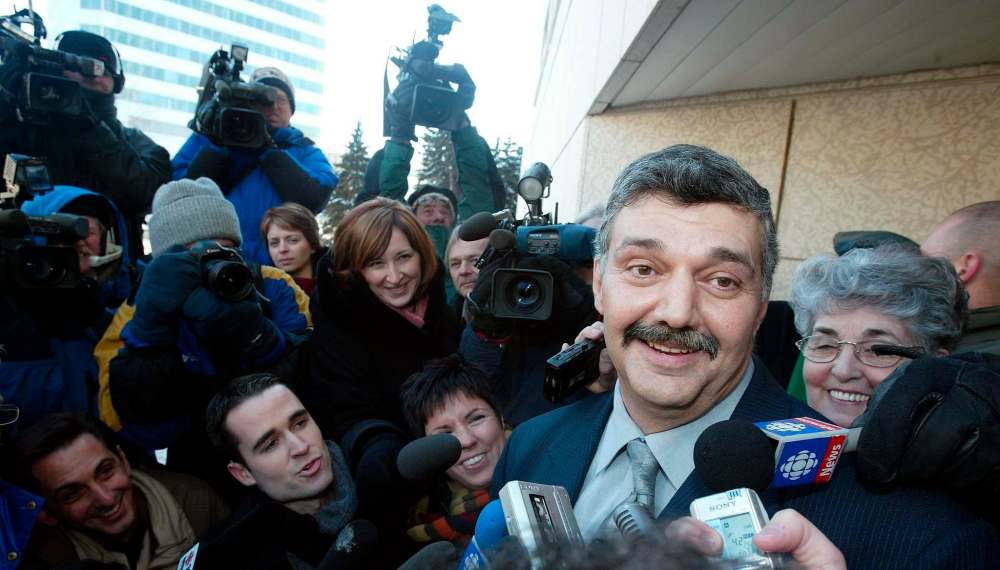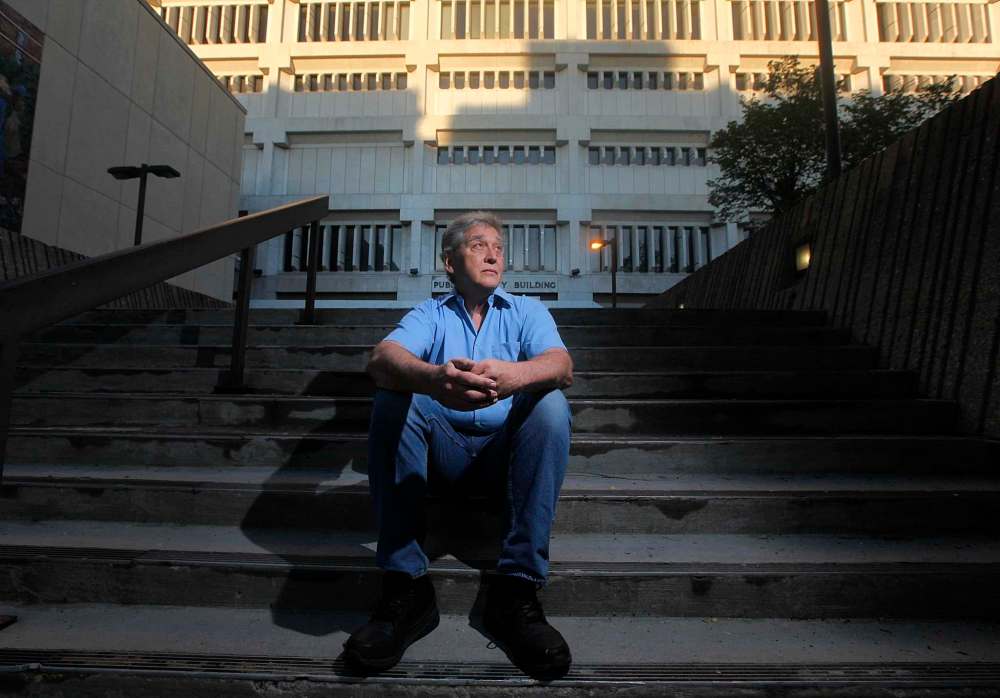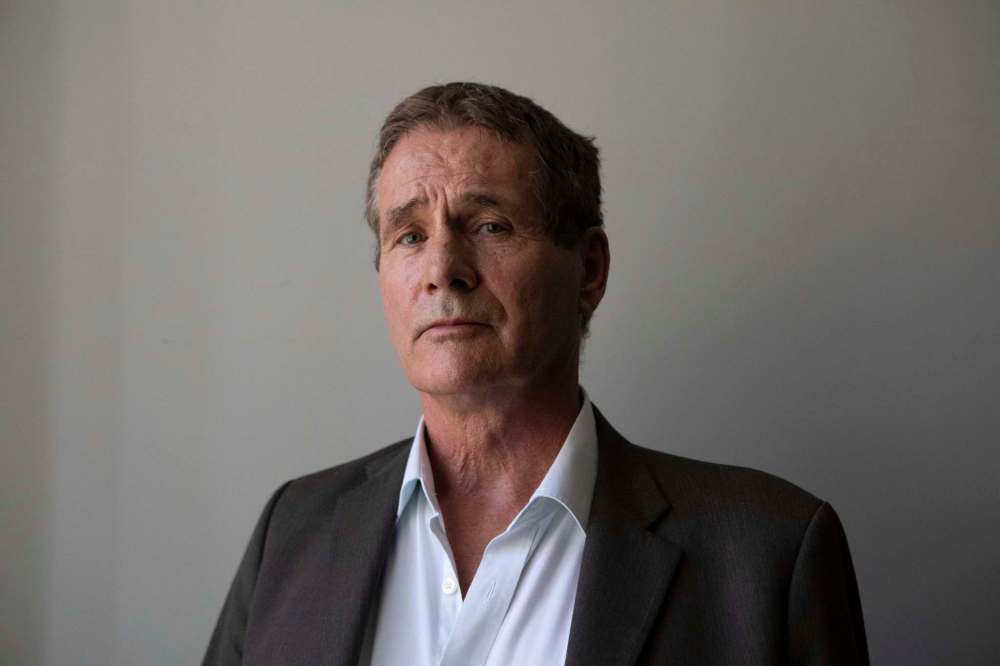Winnipeg right place for wrongful conviction summit
Advertisement
Read this article for free:
or
Already have an account? Log in here »
To continue reading, please subscribe:
Monthly Digital Subscription
$0 for the first 4 weeks*
- Enjoy unlimited reading on winnipegfreepress.com
- Read the E-Edition, our digital replica newspaper
- Access News Break, our award-winning app
- Play interactive puzzles
*No charge for 4 weeks then price increases to the regular rate of $19.00 plus GST every four weeks. Offer available to new and qualified returning subscribers only. Cancel any time.
Monthly Digital Subscription
$4.75/week*
- Enjoy unlimited reading on winnipegfreepress.com
- Read the E-Edition, our digital replica newspaper
- Access News Break, our award-winning app
- Play interactive puzzles
*Billed as $19 plus GST every four weeks. Cancel any time.
To continue reading, please subscribe:
Add Free Press access to your Brandon Sun subscription for only an additional
$1 for the first 4 weeks*
*Your next subscription payment will increase by $1.00 and you will be charged $16.99 plus GST for four weeks. After four weeks, your payment will increase to $23.99 plus GST every four weeks.
Read unlimited articles for free today:
or
Already have an account? Log in here »
Hey there, time traveller!
This article was published 09/01/2020 (2163 days ago), so information in it may no longer be current.
Since pledging last fall to set up an independent commission to review cases of wrongful conviction, Prime Minister Justin Trudeau and the federal government have been painfully silent about what they are prepared to do and when they are prepared to do it.
That is why the victims of wrongful conviction and their advocates have decided to take matters into their own hands and keep the issue alive.
A special one-day conference (Jan. 17) is planned for Winnipeg’s Canadian Museum for Human Rights, where four victims of wrongful conviction — who together have served more than 60 years in prison — will gather to share their experiences.

The event will include appearances by David Milgaard, wrongly convicted of murder in Saskatchewan in 1970, along with James Driskell, Thomas Sophonow and Frank Ostrowski, all of whom have seen their homicide convictions erased in Manitoba.
Also appearing is Brian Anderson, convicted of murder in Winnipeg in 1974, and whose bid for exoneration has been taken up by Innocence Canada.
Calgary civil lawyer Greg Rodin, a former Winnipegger, said the event is timed to remind Justice Minister David Lametti, the federal government and general public just how important it is to follow through on the promise of an independent review body.
Rodin handled civil compensation claims for Milgaard and Kyle Unger, wrongly convicted for a 1990 Manitoba murder and later freed following a federal review. He will be joined at the event by Gavin Wolch, who worked with his father Hersh Wolch on the Unger case, and Toronto lawyer James Lockyer, who has successfully freed 10 victims of wrongful conviction (including Driskell, Ostrowski, and Guy Paul Morin of Ontario) and is working on at least two Manitoba cases.
“There isn’t a question about what (the federal government) is going to do, but there are questions about how they’re going to do it and what rules and resources their going to come up with,” said Rodin.
Rodin noted Winnipeg, and the CMHR, were obvious venues for such a gathering.
For reasons that are not entirely clear, Manitoba has developed a reputation for producing more than its fair share of wrongful convictions.

Adding to the province’s infamous profile is the fact a single prosecutor — the long-retired George Dangerfield — was responsible for all four confirmed cases, with two of those (Driskell and Sophonow) sparking judicial inquiries and multimillion-dollar compensation settlements. Three other cases Dangerfield prosecuted are currently subject to review by the federal justice department.
The CMHR event comes at a critical moment in the gestation of the 2019 Liberal campaign pledge. Little has happened since the initial pledge, which contained no firm details or timelines, was made.
Ottawa already has the power under provisions of the Criminal Code to review individual cases (even when the person involved has exhausted all normal avenues of appeal) and order remedies that range from the quashing of convictions to retrials and appellate hearings on new evidence.
However, the system is complex and can take years, even decades, to complete. Individual applicants, most of whom are denied any kind of legal aid, must find lawyers willing to work for free. It all adds up to a system that discourages many people from even trying to seek a remedy.
Adding to the challenge of establishing an independent commission to review wrongful convictions is the fact most provinces would likely oppose it in principle.
Although criminal law is largely the responsibility of the federal government, prosecutions fall under the purview of the provinces. In past discussion, they have resisted the creation of an independent review commission as a form of intrusion on an area of provincial responsibility.
A federal review commission would also have to address the issue of resources to help applicants access legal representation and investigation services. Ottawa has slowly abandoned its support for provincial legal aid programs, leaving most scrambling to keep up with increasing demands. It remains unclear whether the federal level would be willing to provide money, on its own, to allow applicants to get legal support.

On the positive side of the equation, should the Liberal government decide to proceed, it will likely find support in the House of Commons, even with a minority mandate. Both the NDP and Green party pledged support for an independent commission, when the topic came up in the election campaign.
The timing is spot on; the location is strategically and symbolically appropriate. One can only hope decision makers in Ottawa are paying attention.
dan.lett@freepress.mb.ca

Dan Lett is a columnist for the Free Press, providing opinion and commentary on politics in Winnipeg and beyond. Born and raised in Toronto, Dan joined the Free Press in 1986. Read more about Dan.
Dan’s columns are built on facts and reactions, but offer his personal views through arguments and analysis. The Free Press’ editing team reviews Dan’s columns before they are posted online or published in print — part of the our tradition, since 1872, of producing reliable independent journalism. Read more about Free Press’s history and mandate, and learn how our newsroom operates.
Our newsroom depends on a growing audience of readers to power our journalism. If you are not a paid reader, please consider becoming a subscriber.
Our newsroom depends on its audience of readers to power our journalism. Thank you for your support.




